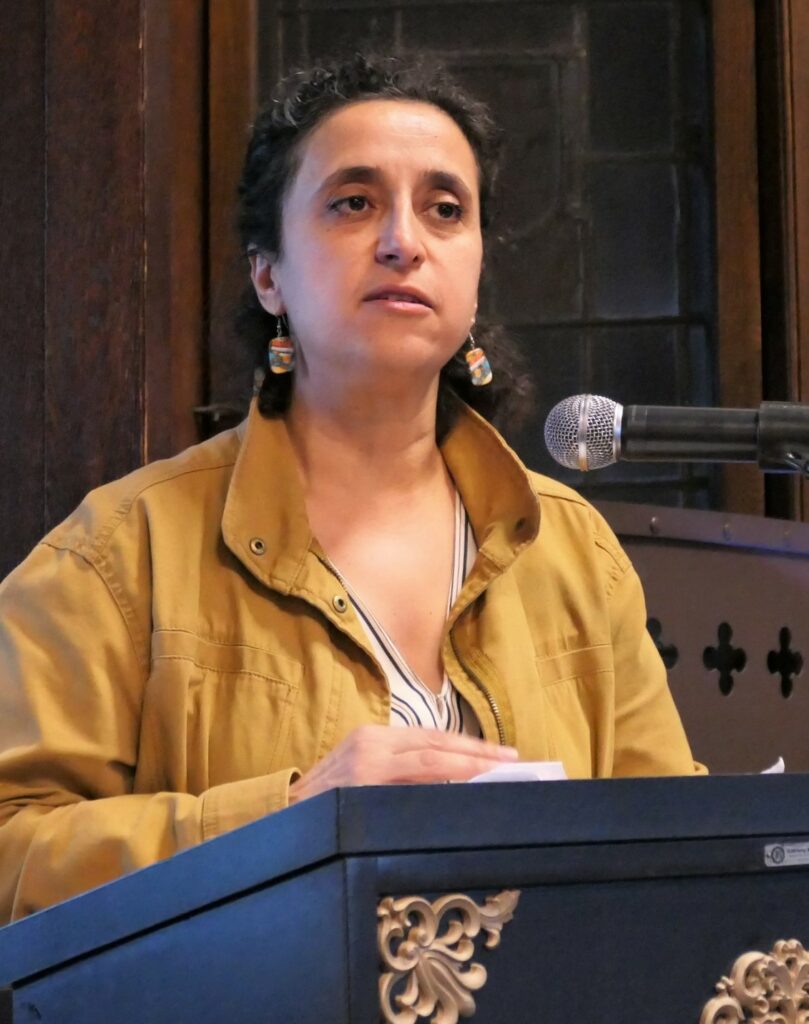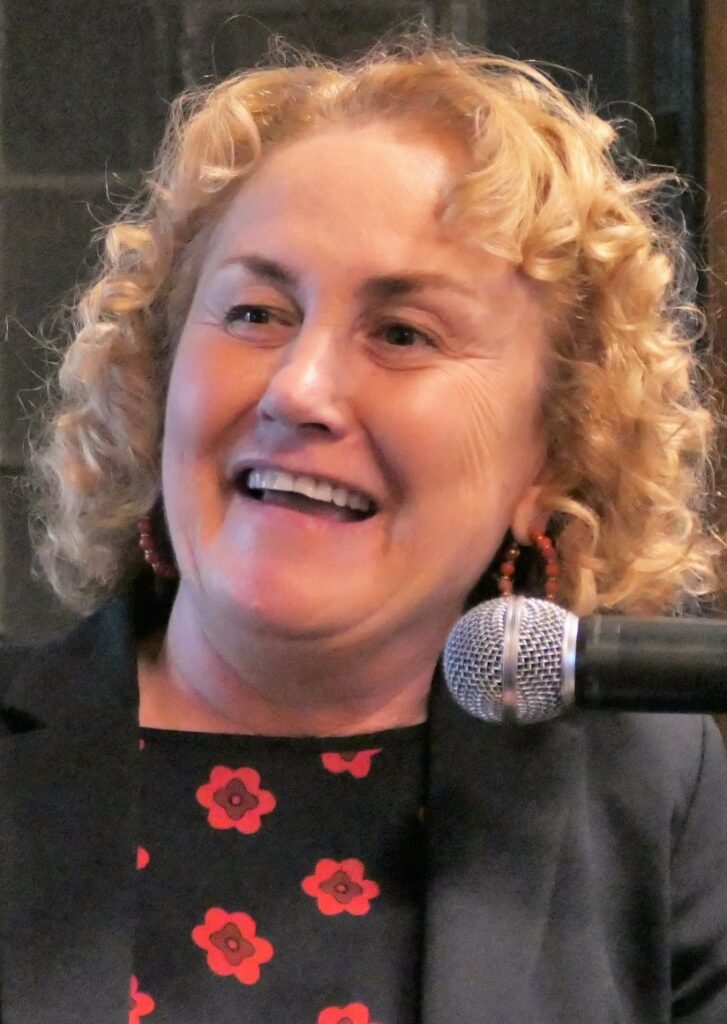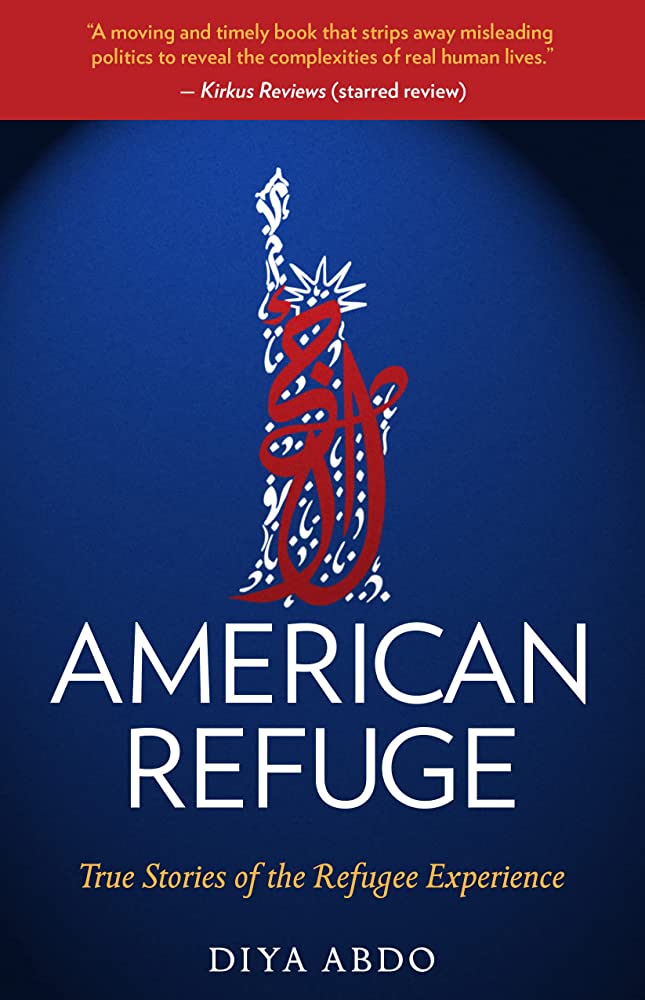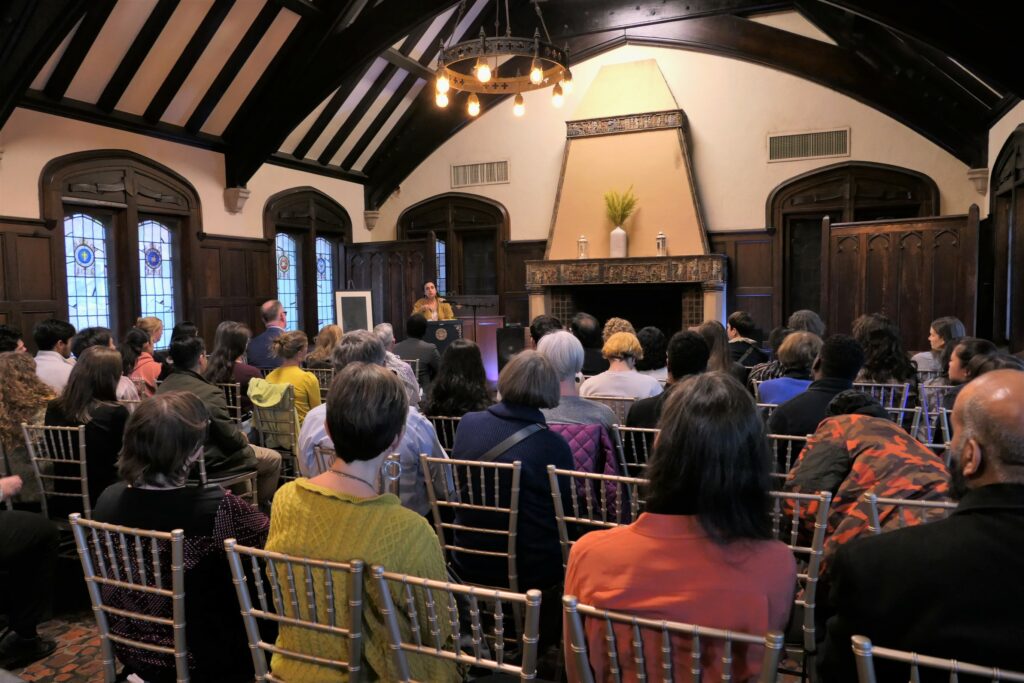Diya Abdo’s mission is right there in the title of the organization she founded in 2015: Every Campus a Refuge.”
Institutions like colleges and universities are “resource rich,” she said. They are thus exceptionally well positioned to assist refugees as they seek to establish a foothold in a new country, providing a few months of free housing and access to campus resources.
Abdo, a second-generation Palestinian refugee, founded the first Every Campus a Refuge chapter at Guilford College in North Carolina, where she teaches English. There are now 15 chapters nationwide.
She spoke about the initiative, and about her new book, “American Refuge,” at two venues in Lancaster last month, Pepper Theo Cafe and the Franklin & Marshall College Common Hour. It was her second visit to Lancaster.

About ECAR
The founding of Every Campus a Refuge, ECAR for short, was inspired by Pope Francis, she told her audience at Pepper Theo.
During the Syrian refugee crisis, he had called on every parish in Europe to adopt a refugee. That call for “radical hospitality resonated, she said, and it got her to thinking. A parish is a community bound by a shared ethos: Aren’t colleges and universities the same thing?
She also recalled that the Arabic word “haram” can mean “campus,” but refers literally to a place of safety, a sanctuary.
Typically, ECAR chapters host one family at a time at a residence owned by the institution, which covers the bill for utilities and other costs. The chapter and a refugee agency in the community partner to provide support services. Ideally, ECAR is incorporated into the curriculum, offering coursework on refugee issues and volunteer opportunities to students.
ECAR gives its families much-needed breathing space. They’re less likely to have to take the first job they’re offered, or to end their children’s education prematurely because they have to earn money, or to struggle to rent an apartment because they have no work history or credit history.
The presence of resettled families on campus, in turn, gives students unique opportunities to learn, not only about the refugee crisis and other global issues, but about acutely local ones: Housing, jobs, education, health care.

Chapters are licensed by Abdo’s organization. They are asked to follow its guidelines and best practices and are provided logistical support, expertise and access to grant funding.
Abdo’s talk at Pepper Theo was hosted by Church World Service, Lancaster’s largest resettlement agency. Church World Service would enthusiastically welcome a local ECAR chapter, Director Valentina Ross said.
At F&M, junior Angela Azar responded to Abdo’s call to action by launching a club, F&M Action for Refugee Resettlement. It aims to partner with Church World Service and work toward achieving official ECAR status, Azar told The College Reporter, F&M’s student newspaper.
Representatives of Millersville University and Lancaster Theological Seminary said their institutions are aware of ECAR and in the process of exploring whether hosting a chapter would make sense.
American Refuge
Abdo’s book, “American Refuge: True Stories of the Refugee Experience,” was published last fall. She said she wrote it to dispel myths about refugees and to give them a chance to tell their own narratives in their own way.

As part of the asylum approval process, refugees are frequently required to repeat a rote, formulaic version of their stories. Abdo said she allowed her interviewees to share what they wanted to share, asking open-ended questions and listening as they meandered from memory to memory, reweaving the richness of their life experience.
It’s empowering to share your story, but everyone has things they want to keep private, too, and she honored those wishes.
She said she also made a point of trying to capture the style of her Arabic-speaking interviewees’, choosing words that accurately reflected their native-language usage, even if the resulting English was somewhat unidiomatic.
“Hopefully, if you read the book, you can sense some of those defamiliarization moments. … That is on purpose,” she said.
Stories change minds, she said.
“We’re all very similar in these really human ways,” she said. “I just really wanted to capture that … I think that’s how we learn.”







